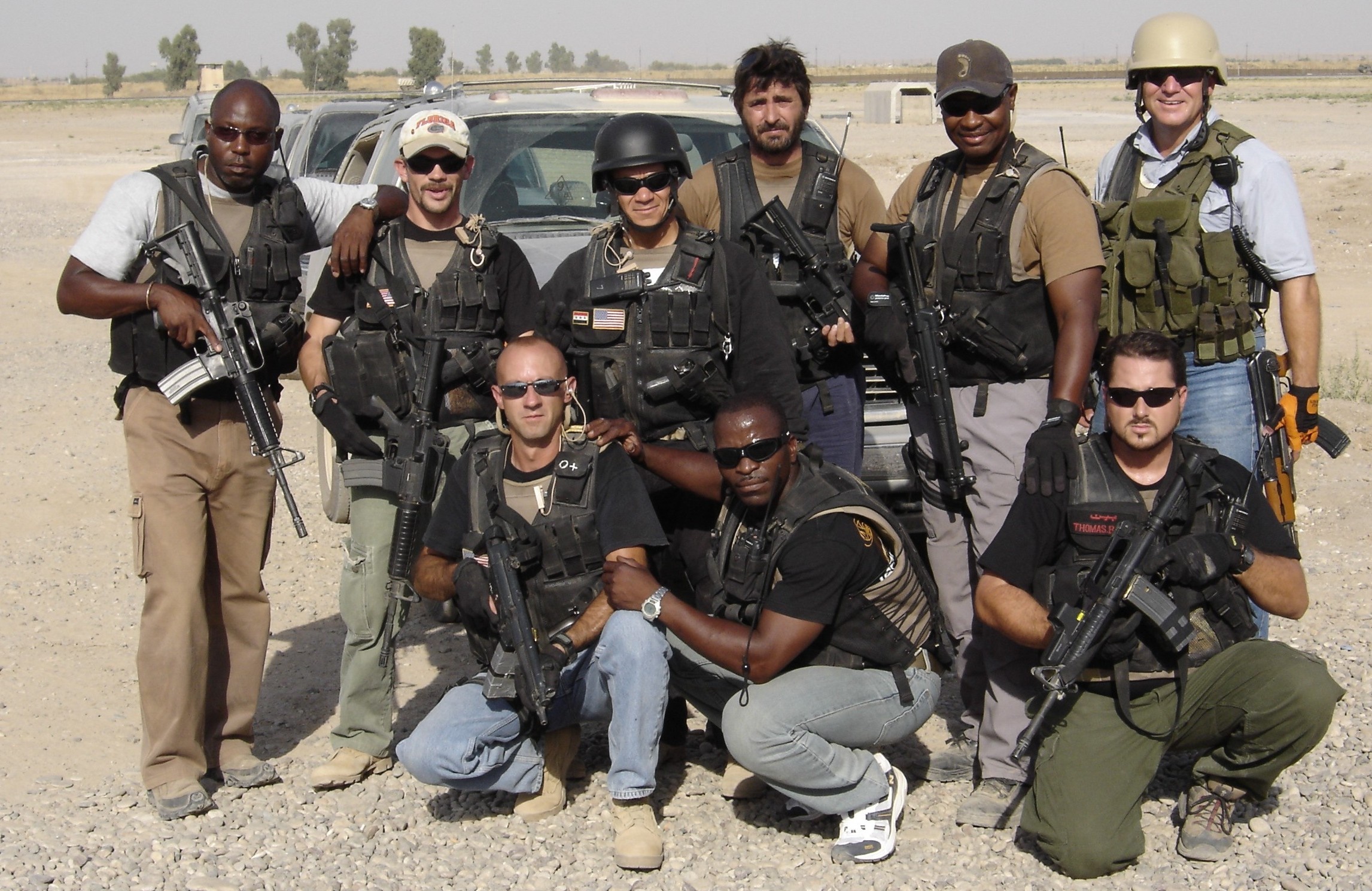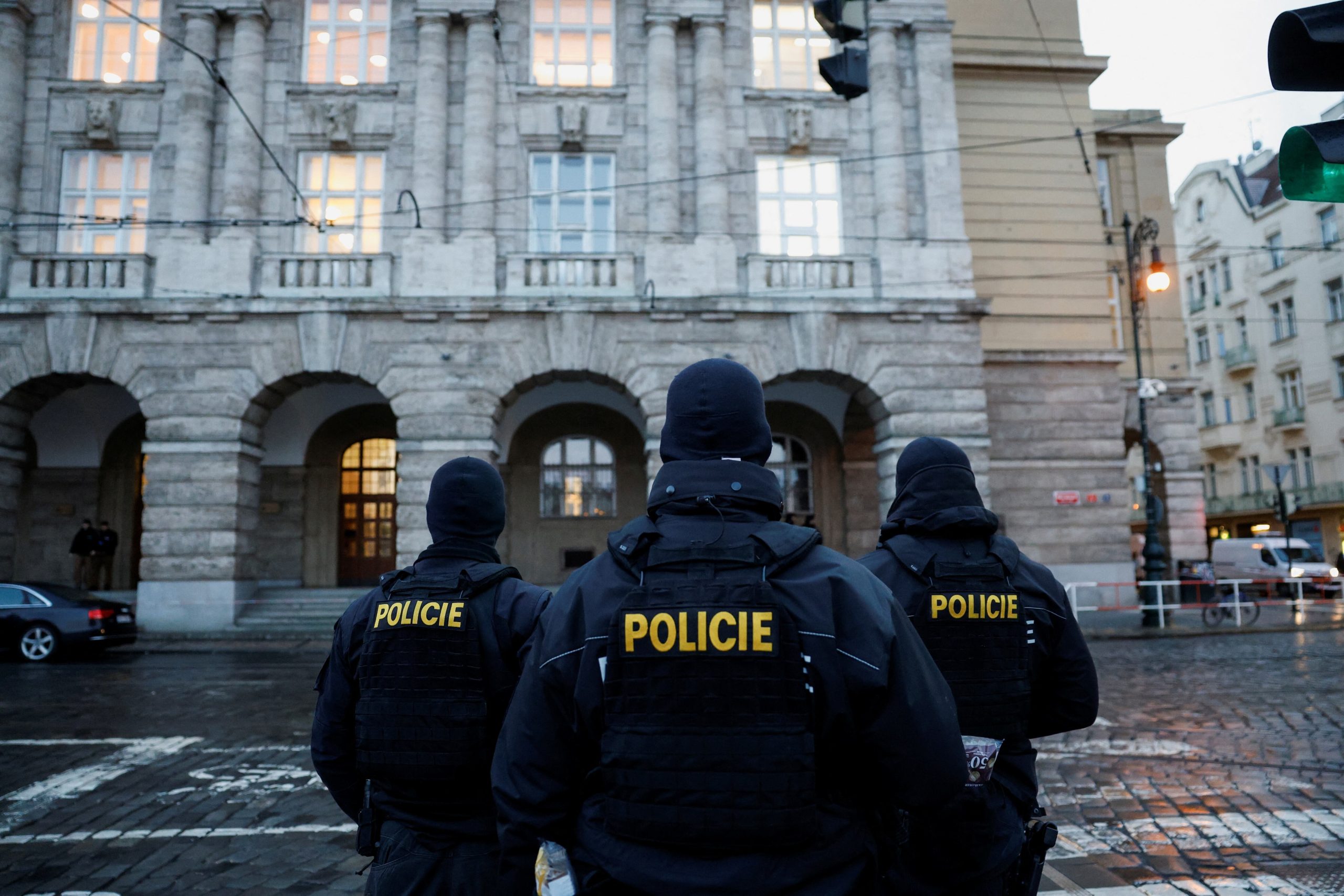
Dr Mohammed Salah Djemal
The Private Security Companies; An Overview on Typology Approaches
By Mohammed Salah DJEMAL
Ph.D researcher at University 8 mai 1945 –Guelma-
mohammedsalahdjemal_0123@hotmail.fr
Abstract:
Several categorization attempts were proposed researchers to better understand the causes, dynamics and the consequences of the emergence of broad market Military services.
We will be holding from the last two Typology proposals division between Private Military Companies or PMC and Private Security Companies or PSC. Categorization according to the types of services offered by Singer and Avant.
Keywords: Private Security Companies; Typology; Military Industry; Security Market; Security Services.
- Introduction
The treatment of the question from the typological angle allows us to better design the constituent elements of the private military services industry. On the other hand, the limits in the typology obliterate several questions. In relation to the epistemological bases of the frameworks proposed by the two authors. Note that we will not engage in a discussion of the effects or causes of privatization of the critically studied security.
- Conditions of Emergence of the Private Security Market
The establishment of the national armies, known in their present form, is the current time dating back to the 17 and 18 centuries, after the European countries have redrawn and defined their borders according to the Treaty of Inquiry and the 1648, until then, the Kings and Princes recruited a large number of mercenaries by private companies (Condottieri), or by foreign parties such as criminals or captives and Germanic, Swiss and Hungarian gangs until the years of the 1990s, the legitimate practice of violence that allows security and defense of the Territory and the people has been regarded as one of the most important monopolistic functions of the State, and over the last two decades, Globalization and economic liberalism have invested in this sector, which is gradually shifting from being a “public property” to a commodity like the rest of the goods so that we are now talking about the so-called “security and defense market”, and as a whole market, the latter is naturally composed of two types of “exhibitors ” and ” The Taliban “, on the part of the Security Seekers (clients), we find private individuals and companies, and in the years this has also expanded to include non-governmental organizations, governmental organizations and States. [1]
Since the mid-1980s, the demand for security has risen exceptionally, and the reasons for this rise are due, inter alia, to the rehabilitation of the security of the individual and of human security in general, the sudden rise of the phenomenon of terrorism and the maritime Sea, as well as the reduction of budgets and elements of regular armies on The global level, the collapse of several countries, the emergence of conflicts and ethnic conflicts in Europe and Africa… This is what the various international organizations have indicated and warned, and the United Nations body, the latter, and the fact that it has found itself unable to cope with these crises and the successive problems that have shaken the international order since 1991.[2]
Regardless of the powerlessness of the United Nations, NATO, the European Union and other alliances can be seen to have found themselves, individually and exceptionally, compelled to intervene directly in inter-agency conflicts and in military operations beyond their borders and neutralize the parties of conflict, the rebuilding of peace, the restoration of the national sovereignty of a particular state, as well as the attempt to pave the way for conditions and conditions conducive to the development and consolidation of democratic values, the advancement of the economies of those States that were on the brink of collapse, and the search for the restoration of the security system within them. Work on political escorts and
establish more curative systems.[3]
The United States of America, for example, as the world’s foremost military superpower, has intervened on almost every continent, with the southern American census falling from more than 2 million in 1991 to only 1 million and 300,000 troops in 1999, a decline of about 35% in less of a decade. It is not only the United States of America that has done so, but the
phenomenon of the reduction of the number of armies, and the simultaneous solutions that allow bridging the gap in the number of men in
armies, coinciding with the warnings of international non-governmental organizations, which include threats and threats that affect the difference Working in various regions of the world, and the need to provide protection and security for them, especially in areas where conflicts, armed conflicts and wars exist, in areas where conflicts, armed conflicts and wars are known, international non-governmental organizations have also decided to seek solutions to this issue in order to Being able to perform their functions and functions is normal and professional, and the option available at the time was to recruit bodyguards.[4]
At the same time, the special security offerings have increased at a significant pace, as the reduction of the budgets and enumeration of military armies, concurrent with the fall of the Berlin Wall and the disintegration of the Communist camp, has caused unemployment among the demobilized soldiers, who were estimated to number in the thousands, and in a short time they found themselves within the “safe labour market “The demand for security is increasing, and it is therefore natural that a particular market should evolve in order to respond to security imperatives that are sometimes beyond the state’s capabilities and public potential. The supply and demand for security has become an urgent necessity after all.[5]
By explaining the growth in the security market from a historical economic point of view, the phenomenon of the privatization of security and military operations reflects different realities, and if we look at international non-governmental organizations, their security demands are mainly in the form of security measures directed at staff and personnel. In the field, but security demands are becoming more complex for third parties if they are relied upon, such as States and international organizations, and the reduction of military expenditures has not only affected combat units, but has also included the purchase of military equipment and repair expenses, the supply of configuration programmes Military internship, construction and renovation of military installations… And so, after the end of the cold War, this explains the multidimensionality that we find at the moment, working alongside the regular military forces.[6]
The point of view of the security market is what happened in Fallujah in March 2004, where four “Mercenary soldiers” were assassinated, working for the US private security company Blackwater, and the Abu Ghraib prison scandal, in which the two security companies CACI Inc and Titan Inc were accused of killing scores of M. Iraqi civilians by private security guards teach at Blackwater company all these accelerating events sparked the attention of the media for the first time to a privileged actor linked to the privatization of security and defense is “private security and military companies.”
On the other hand, public opinion in various industrialized countries has demonstrated their rejection of the laws of military service in their regular armies and called for the restriction of this law, especially since the numbers of military service soldiers have been killed or disabled in the performance of their military missions outside their national states, and because of its These pressures, governments are forced to employ military and security without compromising or reverting to the idea of military service, thus resorting to hiring private security and military companies, and with increasing parliamentary pressure, especially in countries with a parliamentary system, to reduce the number of active soldiers Outside the national state due to human losses, the result was that the increasing demand for such companies in the security market, thus arguably the public opinion in democratic countries was an indirect reason for creating a private
security market and increasing demand for private security companies.[7]
In another context, the composition of armies itself has tended to be modern and professional, meaning that what matters in the organization of the army is the introduction of modern techniques and technologies to reduce human losses, and to ensure a good and effective performance of the
military, so that modern armies entered the military programmes of space as a matter of pain For example, the pursuit of the development of a military space system and the dispatch of satellites for surveillance and espionage in all situations, especially in the framework of the battles, the latter which became entrusted to the soldiers of private security and military companies trained to carry out special operations any desire to bring about integration of evolution of military technology and the reduction of human losses, especially for the elements of the regular armies, in order to avoid national and international criticisms and criticism.[8]
In addition, the emergence of the so-called Asymmetric Wars has contributed to enriching the private security market, through the fact that many parties to the war (especially militias) need to acquire and be able to gain military expertise on the battlefield, and to control the military apparatus of weapons and rockets, so do some Parties to contract with private security companies with a view to providing military formation to elements of the parties to the war or conflict, regardless of whether this is contrary to national and international norms and laws, all of which also contributed to the growth of the private security market, particularly in Africa.[9]
In short, three stages of the emergence of the security market can be talked about:
The first stage dates back to the Middle Ages and the Italian Renaissance, and the second phase of the 1960s with the mercenary militias led by personalities such as David Stirling, Jean Schram and Bob Denard, their favorite field was all the Congo Gao in the years between 1960 and 1964, and Yemen 1963, Angola 1975 and the Comores Islands between 1968 and 1995, these were mercenary barons, possessing sophisticated means, techniques and weapons that would enable them to enter into any conflict against profitable targets, for example, Bob Denard in the Comores in 1995, his elements possessed less weapons than they said. They were heavy and sophisticated, they possessed weapons that were mildly heavy and sophisticated, for example, they possessed very sophisticated rifles that enabled them to win many battles, and the third stage starts from the third millennium, with the designation of private security and military companies that have Human elements are well trained and are made up of using various military techniques on the battlefield.[10]
The dominant division among researchers is the one that speaks of two types of companies, namely private military companies and private security companies, so private security companies are usually considered as companies offering defensive services aimed at protecting personalities and property, while the companies are the Its own foul is specialized in the supply of offensive services i.e. it has a “military character such as military exercises and formations, participation in combat battles and control of certain territories itself. [11]
It is understood that this division represents important entry points that enable the understanding of the “security markets, but in return the complexity of the concrete conditions on the ground makes this division
controversial for several reasons, as the practices of these companies are governed by access to military technologies for surveillance and coercion That lead to communication (technological continuity between private military companies and private security companies, and the presence of a defensive function in a particular case may have an offensive effect in another case.[12]
This division is also shrinking when it is realized that both types often use special forces elements who have completed their tasks in their regular armies or retired and security, and have been employed in private security sectors and, as a result, situational requirements may cause the “private security companies ” to adopt behaviors and offensive practices if required, as in contemporary internal conflicts and conflicts, as in contemporary internal conflicts and conflicts, the territories or facilities that are defended and protected by the “private security companies” are often financed by the parties to the conflict, and therefore the The arrival of these companies in the conflict regions, it is seen by the opponents of the contractors with these companies as “aggression “. [13]
This division, therefore, is difficult to maintain and maintain because of the escalating convergence between conventional military services and tasks, security activities in contemporary warfare, as well as the variety of services financed and carried out by these companies.
- Paul Singer’s Approach
The basis for the dynamics of military services in terms of their hybrid nature that connects military and commercial fields at the same time, and therefore singer rejects the notion of division based on private security companies and private military companies and alternatively, the subsidiaries of this sector are grouped under the name of Private military company which defines it as follows:
“Are new business organizations, trading in professional services that are related to conflict and war, relying on military skills […] military companies, which are generally confined within the general context. Through the influence of Seeger in the micro-economy, the division that he submitted, falls within it “subdivision” consists of the service supplier, the consulting subsidiary, and the Supplier Project (tasks) a of a subsidiary.[14]
In the military field, singer defines a ladder related to battles as a criterion for classifying the company according to its impact in the battle (on the public square, on the battlefield, on the field of operations), and therefore singer offers other subdivisions of the private military industry to a military company received, a military consultancy company P Sugary support and singer relied on the standard of service range… The standard of force level of these companies is:[15]
3.1- Military Receiving Companies:
These companies supply services at the forefront of the battlefield and directly engage less or more in combat operations as units or specialists, for example (Pilot Fighter direct commander of units) and these companies generally target customers who have weak military capabilities Relative or those that are exposed to immediate threat.[16]
3.2- Military Advisory Companies
These companies provide consultancy or training services, which
allow the customer to understand and reshape the strategic, operational and tactical environment. It also integrates at all levels the organization of the customer except the front lines and is the decisive distinction with other
service providers (military companies received), in this type we find that customers (customers) are often integrated in the operations of repair and upgrading of military capabilities and desire In further cooperation and important long-term coordination c/military support companies these companies provide assistance, subsidy and support services that are not included, which includes support… , technical support, procurement and transportation These companies also specialize in the sub-tasks related to the activities of the client by providing the capabilities, opportunities and competencies that the client cannot achieve individually, and the latter is often integrated into long-term interventions that need to be focused on The tactical field this sector, according to singer, is the most important part of the security share, as is the size of it compared to its own. [17]
Singer’s approach, which divides private military companies into three service sectors, has contributed to the achievement of several valuable benefits in that it allows for the observation of changes in each company in
a particular sector, and within the private military industry in general, as well as the possibility of effectively describing the types of companies and the partition system presented by singer allows to observe the interrelationship between the economic and military dynamics in the organization of companies.
- Deborah Avant’s Approach
The goal of Dr. Avant in her famous book (The Violence Market), in fact explaining the effects of the privatization of security, is more than her desire to establish a theoretical aspect concerning security actors and private security markets, so she focuses on an institutional approach based on the element of privatization through three forms of censorship (functional, political and social to continue to determine institutional mechanisms, and political processes that affect censorship, by incorporating content used by the rational and the economists, so the central point of the Avant approach is the transformation from the subject of the study which was under the name of the company Towards the contract, Avant is trying to determine the contractual relationship between the client and the security company about a certain service and for a certain period, so that the Avant offers a classification of “security services and military services”, which is as follows:[18]
- Military services (foreign) in the case of Avant, offshore services are related to the protection of the border with a military dynamism, and these services are through a “contract ” in which the direct operations of the military company, and in this context we find that the first type of Singer (military companies received ) to two categories. The first class of the contract, which is due to military operational support, which includes the direct operations of the battle, and the second category relates to unarmed operational support in the field of air battle and aerial surveillance 2. Police Intern Services It is about the companies that offer services is one of the traditional roles of the state, which is linked to police activities such as counseling, police coding, crime control, and information. [19]
- Intern and extern Security and Special Operations
This category focuses on offers of civil disobedience services, counter-terrorism, and other special operations, this category is related to the fight against international criminals, so this item is a hybrid
class Hybrid category combines the first and second. [20]
In another context, you see that there are many reasons why private security companies are more careful and discreet in carrying out their activities and tasks, as follows:[21]
- The relationship between the security and privacy of the activity, in which we find that the details of the tasks are only seen by the contracting companies and customers, and these details of the very good to be publicly disclosed, so the access to information and transparency is very difficult in the face of restrictions related to privacy and confidentiality of sensitive information towards the customer and all related to the operations and tasks of these companies.[22]
- Previous experiences have shown that companies that have benefited from contracts of intervention and perform special tasks in the framework of direct battles, have been pressured by the great pressures of different parties.[23]
- Conclusion
The formulation of a theoretical framework to understanding the phenomenon of the private military service industry is certainly not done.
The disagreements as to the choice of a typological form are many. This debate involves actors from as many academic, commercial, political and military fields that of various pressure groups. Thus, the interests that collide are multiple and heterogeneous.
On the other hand, the question of the legitimacy of the actors in this industry and the regulation that may arise requires an understanding of the phenomenon that allows informed choices in the face of policies to be undertaken. It is therefore important to go beyond the controversy and to debate a solid theoretical framework.
- Footnotes
[1] – Jean Didier Rosi, « Société militaire et de securité privée : Les mercenaires des temps modernes ? » Les cahiers du RMES , volume TV , N : 02, Hiver 2007-2008 , P109.
2 -Ibid, p110.
3 -Ibid.
4 – Ibid., pp110-111
5 -Seydoux A , « Politiques de défense de américaine depuis 1992 », disponible sur http:// www.Cliosoft, fr/11-00/ politique défense. htm
6 -Ibid
7-Ibid
8 -Jean Didier Rosi, Op.,Cit,p 111.
9 – Henri Paris, « LE RENOUVEAU DU MERCENARIAT DANS LES RELATIONS INTERNATIONALES », Géostratégiques, n 16, Mai 2007, pp 87-88.
10 -Ibid, p89.
11 -Ibid,
12 -Ibid, pp90-91
13 –Philippe Dufort, « Typologies des acteurs de l’industrie des services militaires », Centre des Etudes des Politiques Etrangères et de Sécurité, Université du Québec à Montréal , Octobre 2007,p, 12-13.
14 – Ibid , p13.
15 – Ibid.
16 – Ibid.
17- Paul W Singer , “ Corporate Warriors :The Rise of the Privatized Military Industry “ (USA : Cornell University Press,2003),p08.
18 – Ibid
19 – Ibid
20- Ibid, p 09.
21- Ibid, pp 95-100.
22 -Debroh Avant , « The Market for Force : The Consequences of Privatizing Security” (New York : Cambridge University Press , 2003) p.254.
23 – Ibid.
- Bibliography List :
a/ Books
- Debroh Avant , « The Market for Force : The Consequences of Privatizing Security” (New York : Cambridge University Press , 2003).
- Singer Paul. W , “ Corporate Warriors :The Rise of the Privatized Military Industry “ (USA : Cornell University Press,2003).
b/ Review Articles
- Paris Henri, ‘’ Le Renouveau des Mercenaires dans les Relations Internationales ‘’, Géostratégiques, n 16, Mai 2007.
- Rosi Jean Didier, « Société militaire et de securité privée : Les mercenaires des temps modernes ? » Les cahiers du RMES , volume TV , N : 02, Hiver 2007-2008.
c/ Academic Articles
- Dufort Philippe, « Typologies des acteursde l’industrie des services militaires », Centre des Etudes des Politiques Etrangères et de Sécurité, Université du Québec à Montréal , Octobre 2007.
d/ Website Articles
- Seydoux A , « Politiques de défense de américaine depuis 1992 », disponible sur http:// Cliosoft, fr/11-00/ politique défense. htm




